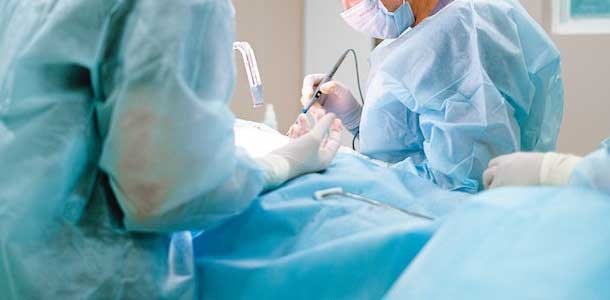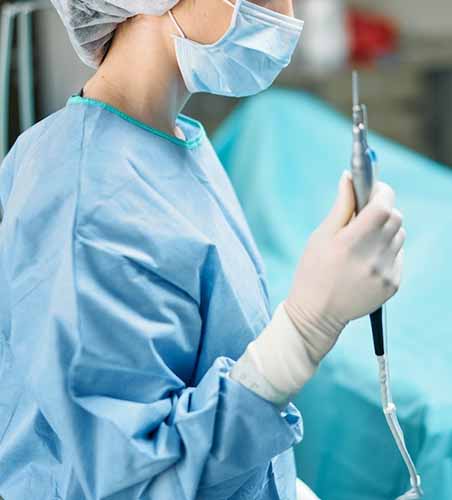In recent years, Laparoscopy has been hugely used as a surgical process of choice to address a range of ailments and conditions. This surgery has become quite popular with doctors and patients alike considering the big number of benefits it provides and the faster time to recovery.
Let us look at what exactly this procedure involves and where it can be deployed as explained by top laparoscopic surgeon Dr Amita Jain.
Laparoscopy as a surgery has become quite popular in recent years. It takes a revolutionary approach to perform the procedure wherein several smaller cuts are made in place of the traditional approach of making one large incision to access the part to be operated.
The procedure uses a device known as the laparoscope, a narrow tube having a tiny video camera and a bright light at the tip. The doctor inserts this tube through a small cut of the width of around 1 cm to take a clear look at the internal organs.
A few more incisions are made in other parts in and around the site through which a few other tools are inserted to perform the surgery. Laparoscopy is also known as ‘minimally invasive’ surgery. This sort of surgery was initially used for gallbladder surgery and a few gynaecological operations but it is used now to operate several other organs like intestines, liver, abdomen, and other organs.
India’s leading laparoscopic surgeon Dr Amita Jain talks about the benefits of laparoscopic surgery in this blog.
Benefits of laparoscopic surgeries
- The patient can get discharged from the hospital faster
- There will be fewer scars post-surgery
- The patient experiences less discomfort as the scars heal, and they heal faster
- The patient can start normal activities quicker
To elucidate the pros of laparoscopic surgery, let us take an example of a typical intestinal procedure. If a patient stays in the hospital for nearly a week having a traditional surgery and takes about 4 to 8 weeks to recover, under a laparoscopic surgery, the patient might have to stay for 2 nights in the hospital and the recovery could be as little as 2 to 3 weeks. A shorter hospital stay translates to fewer expenses and the patient can also resume his activities within a shorter time.
The following surgeries that can be done through the laparoscopic procedure are hernia surgery, inguinal hernia, hiatal hernia surgery, umbilical hernia, femoral hernia, appendectomy, gallbladder removal, colon surgery, bariatric surgery, and anti-reflux surgery.

Dr Amita Jain is a surgeon with the highest degree of professional competence, precision and surgical craftsmanship. Performed all complicated general surgery procedures with in depth knowledge of invasive and few minimal invasive and onco surgical techniques. Underwent special training in trauma, executed various trauma-related complex life-saving neurosurgical procedures, reconstructed injured mangled limbs and performed vascular and reconstructive procedures with critical care.
Dr Amita Jain holds 28 plus years of rich experience in Trauma and General Laparoscopic Surgeries (including Gallbladder stone removal, appendix removal, hernia repair surgery, piles and fissure surgeries). She was the Professor Surgery of at the Army College of Medical Sciences and Base Hospital Delhi Cantt. In 1994 she was commissioned as Surgeon under the United Nations Mission in Congo. From 2020 to 2022, she worked with Bansals Hospital. Currently, Dr Amita Jain is the Senior Consultant, (Speciality: General and Laparoscopic Surgeon) at Artemis Lite Hospital, New Delhi and Sr. General and Laparoscopic Surgeon at Rainbow Children Hospitals, Malviya Nagar, Delhi.


